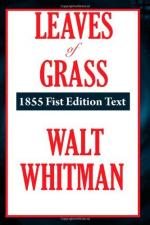|
This section contains 8,968 words (approx. 30 pages at 300 words per page) |

|
SOURCE: "Sexual Equality and Marital Ideology: Whitman and the Novel," in Whitman and Tradition: The Poet in His Century, Yale University Press, 1990, pp. 96-121.
In the following essay, Price examines how prominent sexual themes in Whitman's poetry—such as non-procreative sexuality and female sexuality—influenced later writers of narrative fiction such as Kate Chopin and Hamlin Garland.
On March 1, 1882, Leaves of Grass was officially classified as obscene literature. Ironically, just when Whitman had asserted his centrality to American literature in Specimen Days, just when he was poised to achieve a new degree of recognition through publication by the established house of James R. Osgood, the district attorney of Boston judged his verse to be immoral and the postmaster banned Leaves from the mails. Yet notoriety had its advantages: when Osgood refused to contest the matter in court, Leaves was reissued by Rees Welsh & Co. of Philadelphia and, predictably...
|
This section contains 8,968 words (approx. 30 pages at 300 words per page) |

|


